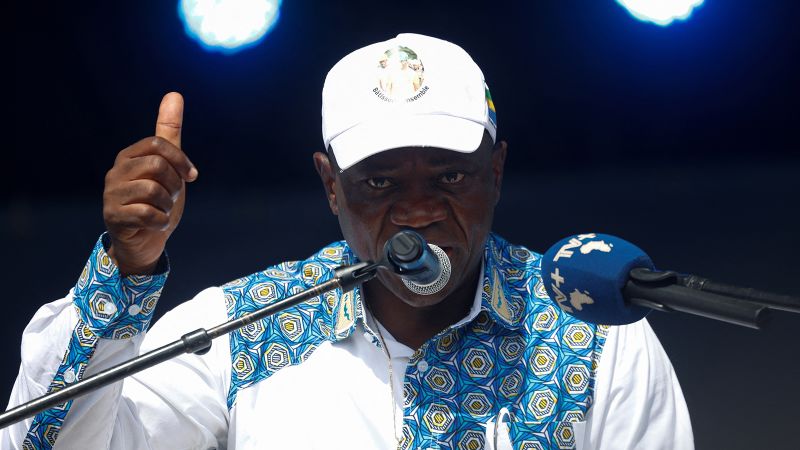Military Takeover: Gabon's New Leader – A Deep Dive into the Coup and its Implications
Gabon, a relatively stable nation in Central Africa, experienced a dramatic shift in power on August 30, 2023, when a group of military officers announced a takeover of the government. This coup, led by General Brice Oligui Nguema, ousted President Ali Bongo Ondimba, who had been in power for 14 years. This event has sent ripples through the region and sparked intense international scrutiny. This article provides a comprehensive analysis of the coup, its potential ramifications, and the future of Gabon under its new leadership.
The Events Leading to the Coup
The military's seizure of power followed President Bongo's controversial reelection victory on August 26th. The election results, which awarded Bongo a third term, were met with immediate skepticism by the opposition and international observers who cited irregularities and a lack of transparency. Claims of electoral fraud fuelled widespread protests and unrest across the country. This volatile situation provided the perfect backdrop for the military intervention.
Key Players and Their Motives
General Brice Oligui Nguema, the head of the Gabonese Republican Guard, emerged as the leading figure in the coup. While the exact motivations of the coup leaders remain unclear, several factors likely played a significant role:
- Allegations of Electoral Fraud: The widely disputed election results served as a catalyst, providing a pretext for the military's action.
- Dynastic Rule: The Bongo family's long reign over Gabon (Omar Bongo Ondimba ruled for 41 years before his son Ali) fostered resentment and a desire for change among some sections of the military and the population.
- Internal Power Struggles: The coup could also be interpreted as a result of internal power struggles within the military and elite circles of Gabonese society.
The International Response
The coup has been met with a mixed international response. The African Union (AU), the Economic Community of Central African States (ECCAS), and the United Nations have all condemned the military takeover, calling for a return to constitutional order and the release of President Bongo. However, some regional powers have adopted a more cautious approach, preferring to wait and see how the situation unfolds.
The international community's concern stems from several factors:
- Regional Instability: Gabon's coup adds to the growing instability in the Sahel and Central African regions, which are already grappling with numerous conflicts and political crises.
- Democratic Setbacks: The coup represents a significant setback for democracy in Africa, undermining efforts to promote good governance and respect for human rights.
- Economic Implications: The political uncertainty could negatively impact Gabon's economy, particularly its vital oil sector, leading to potential instability and hardship for its citizens.
What's Next for Gabon?
The immediate future of Gabon remains uncertain. While General Nguema has pledged to establish a transitional government and organize free and fair elections, the timeframe and the specifics remain vague. The international community will be closely watching to ensure that the transitional government adheres to its promises and respects democratic principles.
The success of the transition will depend on several factors:
- Credibility of the Transitional Government: The new leadership's commitment to transparency and its ability to foster national unity will be crucial.
- International Pressure: Continued pressure from regional and international organizations will be essential to ensure a peaceful and democratic transition.
- Internal Reconciliation: The ability of the new government to address the underlying grievances that fuelled the coup will be paramount for long-term stability.
Conclusion: A Turning Point for Gabon?
The military takeover in Gabon marks a significant turning point in the country's history. While the short-term implications are fraught with uncertainty and potential for instability, the long-term consequences will depend on the actions of the new leadership and the response of the international community. The path ahead will require a delicate balance between addressing the grievances that led to the coup and ensuring a peaceful and democratic transition towards a more stable and prosperous future for Gabon. Only time will tell if this coup truly represents a new beginning or a continuation of the nation's political struggles.
